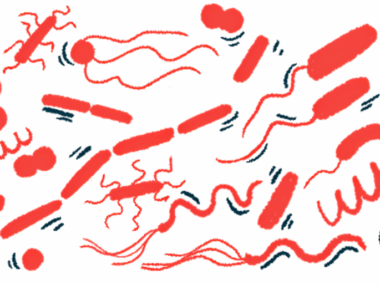Facing the Beast and Being Honest About My Suffering
Written by |

Even after years of practicing the Parkinson’s disease self-management program I initiated and developed, which I call “TBM,” I still experience suffering in the form of intense pain, brain fog, and emotionally turbulent days. Still, I must face the beast. It’s a chaotic experience, difficult to translate, and not described well in the Parkinson’s literature.
In the book “The Wounded Storyteller,” Dr. Arthur Frank explains that chronic illness contains chaos.
“Chaos is never transcended, but must be accepted before new lives can be built and new stories told,” he wrote.
According to Frank, the chaos story is not often published and gets squeezed out by the optimistic “I got well” or the “restitution” story. But the beast is my 24-hour uninterrupted chaos experience that I don’t get well from.
Fortunately, this period of chronic suffering from Parkinson’s occurs only a few times a month. But this 24-hour stretch of mind-body malfunctioning is so chaotic and attention-consuming that nothing else is possible other than living through it.
My main goal is to live through the battle with the beast without crossing over the threshold, the point where I have no control over my emotions and impulsivity. It isn’t easy, but not doing so means that the suffering from Parkinson’s spills out all over my partner or any other friends and family that enter my social space.
Control is key during the ugly days. But I haven’t always been successful, and facing that adds more suffering. As the disease progresses, it’s all becoming more difficult. Getting worse is a bit terrifying.
The progression of Parkinson’s may result from a combination of vulnerability of the central and peripheral nervous systems, as well as a “functional reserve” of the neurons involved. Clinical Parkinson’s is a multifactorial pathology, and most cases are classified as sporadic with an undefined etiology.
Mood fluctuations may not be merely a psychological reaction to the motor state. Mood and motor fluctuations may be, at least in some patients, the result of different underlying physiological mechanisms. For patients, fluctuations in mood, like fluctuations in motor state, directly reflect changes in plasma levodopa and brain dopamine levels. Even in patients whose minute to minute mood states are unrelated to plasma levodopa, it is possible that dopaminergic dysregulation somehow sets the stage for a loss of effective homeostasis.
Evidence for general homeostatic dysfunction in Parkinson’s includes a wide variety of symptom fluctuations, including motor, mood, anxiety, cognitive, sensory, and autonomic forms. Some develop inevitably after several years of illness and treatment with dopaminergic medications. Further research is needed to improve our understanding of the mechanisms underlying changes in mood states in patients with Parkinson’s for this frequent and distressing aspect of the disorder.
Being brutally honest about my Parkinson’s and suffering is always challenging. Suffering is a fluctuating mind-body experience that is a natural human response to something gone wrong. It is a state of seeking a solution. Understanding suffering is always about attention directed at feeling better than the way that moment is experienced. In those ugly days, the suffering from Parkinson’s is so loud that I can barely hear anything. The chaos comes in waves that include temperature and histamine dysregulation.
Autonomic dysfunction has been described in up to 50% of patients with diagnosed Parkinson’s. Dysfunction was found to be the only nonmotor symptom that remained more prevalent throughout the course of Parkinson’s in patients presenting initially with nonmotor symptoms, compared to those presenting with motor-related complaints. What is hard is admitting that I have no control over these auto surges.
My internal dialogue of, “This is horrible. How can I get out?” is repeated over and over all day. I feel like I am doing battle with the beast and losing. It is disappointing after years of writing about possibility. But thus far, slaying the beast, or even putting it in a cage, seems impossible. I feel like a failure, and “Dr. C feels like a fraud” reverberates in the spinning. That’s part of the chaos story and I step away.
When it feels impossible to eliminate or cage the beast, that does not mean I am powerless. TBM is designed specifically to reduce the intensity and frequency of ugly days and eliminate consequences from emotional spilling.
As the disease progresses, the intensity of the 24-hour experience worsens. I am grateful for TBM and Mrs. Dr. C, as they help me cope, but it’s always two steps forward and one back. TBM only works when it is practiced daily. It doesn’t work in the middle of battling the beast.
The beast can be managed most of the time but not cured. I’m OK with that narrative.
Do you have chaos stories to share? Please do so in the comments below.
Note: Parkinson’s News Today is strictly a news and information website about the disease. It does not provide medical advice, diagnosis or treatment. This content is not intended to be a substitute for professional medical advice, diagnosis, or treatment. Always seek the advice of your physician or another qualified health provider with any questions you may have regarding a medical condition. Never disregard professional medical advice or delay in seeking it because of something you have read on this website. The opinions expressed in this column are not those of Parkinson’s News Today or its parent company, Bionews, and are intended to spark discussion about issues pertaining to Parkinson’s disease.




judith griffin
Dr C, Thank you so much. I thought it was about some new drug so I was very cautious but it was abut me. I so needed that validation. You walk on water! Stay safe, Judy
ANA MARIA Tamayo
Thank you very much Dr for sharing your suffering with the beast. English is not my mother tongue, there fore I am not fluent. My husband has pd since 2011. Soon its going to be 11 years living with pd in the family.
I am sure Ray, my husband would like to share with you a bit of his chaos stories when his off periods appears. We all are afected, in the first handi himself. We are approaching this situation with the lens of complex adaptative system in order to give it meaning and find possibilities out of chaos and turbulence. Greetings from Perú.
Donice A Carpenter
Thank you. You have managed to describe in detail recurring periods that I go through. I had no way to describe before reading this article. The beast is real. I choose not to feed the beast......not today.
Joan Young
I am ordering his book as he identifies so many of the P. D. Symptoms & describes them so well it has helped me to be able to express myself to my Neurologist most accurately than I have been able to do before .